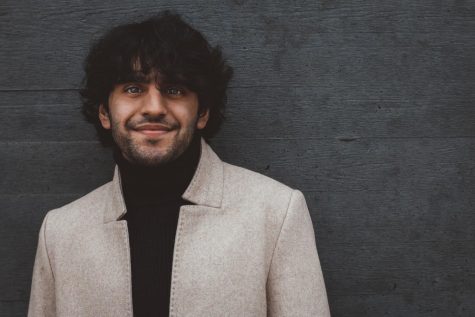
After Steve Rogers handed his shield to Sam Wilson in the blockbuster hit “Avengers: Endgame,” the Falcon contemplated whether he was worthy of being the new Captain America.
The Marvel Cinematic Universe (MCU) released “The Falcon and the Winter Soldier” on March 19, 2021 exclusively on Disney+. The show consists of six episodes starring Anthony Mackie as Sam Wilson and Sebastian Stan as Bucky Barnes.
The show takes place after the events of “Avengers: Endgame” when Steve Rogers hands over his iconic shield to Sam Wilson, entrusting him to be the new Captain America. Because Wilson does not want to harm Rogers’ legacy, he puts the shield under the United States government’s protection.
The federal government assigns US war hero John Walker the task of being the new Captain America. As Walker is both ecstatic and anxious about carrying on Rogers’ legacy, it is obvious that he becomes obsessed with power, leading him to make crucial mistakes on missions. He was eventually stripped of his title, allowing Wilson to take on the mantle.
“The Falcon and the Winter Soldier” took a different route than past films of the Marvel Cinematic Universe by including conversations about racism in the United States. As the show progresses, Wilson meets Korean War veteran Isaiah Bradley who was unwillingly subjected to human testing for the super soldier serum in the 1950’s.
Bradley was assigned with the task of eliminating the Winter Soldier in South Korea but failed. Fearing the story of a Black soldier being subjected to human testing, the government incarcerated him and further experimented on him for thirty years. After his release, they erased his story by faking his death and relocating him to Baltimore.
Bradley’s first-hand experience of brutal systemic racism leads him to grow cynical, telling Wilson the government will never let a Black man be Captain America. Senior Akash Pradeep believes that Bradley’s character added more depth to the show.
“I like how Marvel introduced Isaiah Bradley to the MCU because it’s different from past films. It talks about racism which is something that superhero films and shows often don’t include in their plots,” he expressed.
The main antagonist from “Captain America: Civil War,” Zemo, makes his return but this time as an ally. Zemo helps Sam and Bucky in locating and bringing the Flag Smasher to justice for her violentefforts to reinstate a world without borders. PV alumnus Darsh Balani loved Zemo’s character because he was both entertaining and clever.
“We tend to think villains want to be violent or malevolent, but we rarely try to understand their ways. Zemo lost his family because of the Avengers, so you can see why he despises them,” he said. “Zemo isn’t your typical villain because he understands human nature’s evil side.”
The phrase “never negotiate with terrorists” has long been coined in war time. Sam Wilson, however, does the opposite. He tries to empathize with the Flag Smasher to figure out the best possible solution in ending her extreme campaign. After all, she is one of millions of refugees who were kicked out of their homes after Iron Man snapped people back into existence.
Pradeep was very interested in Sam Wilson’s efforts to stop the Flag Smasher. “I like how I can sympathize with the Flag Smasher and so could Sam. The show is much deeper than a typical hero working to defeat a villain but rather a hero trying to understand the villain,” he said.
The Falcon and the Winter Soldier develops a superhero plot unlike any other. The show digs deeper into race by introducing Isaiah Bradley’s story of experiencing brutal systemic racism. The plot also dives into the origins of the antagonist and makes her story understandable through her vulnerability.








